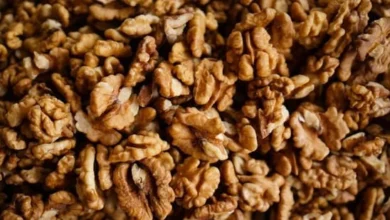Say goodbye to dry, frizzy hair with this step-by-step routine for smooth, silky locks

Does dry and frizzy hair become a recurring problem for you every winter? Blame the cold and dry winds. If you’ve been trying to lather your scalp and hair with nourishing hair masks and conditioners to hydrate them, and your hair still screams for more, know that your hair care routine needs an overhaul.
With the right hair care tips, you can restore your hair’s health and shine.
How to reduce dry and frizzy hair in winter
Before treating frizz, it’s essential to identify the reason behind it. There are multiple factors that lead to dry and frizzy hair. These include:
- Overuse of heat tools (straighteners, curling irons, blow dryers)
2. Frequent chemical treatments like colouring, perming, or rebounding
3. Using shampoos with sulphates and alcohol
4. Environmental damage from sun exposure, humidity, or pollution
5. Lack of hydration or poor diet
If any of these reasons is causing your hair to become frizzy and dry, you can target it more effectively.
Choose the right shampoo and conditioner
Always opt for sulphate-free and paraben-free shampoos and conditioners, as sulphates strip natural oils from your hair, leaving it dry and dull. In fact, look for shampoos enriched with argan oil, keratin, shea butter, coconut oil, or glycerin, all these ingredients nourish and lock in moisture in your hair.
Never forget to follow up with a hydrating conditioner every time you wash your hair. This helps seal the hair cuticle and retain softness. For added benefits, use a deep conditioning mask once or twice a week to restore lost moisture.
Limit heat styling
Excessive heat is one of the major enemies of frizz-free hair. Regular blow-drying or straightening breaks down hair proteins, making it weaker and more prone to dryness, causing frizz. So, it is always advisable to try to air-dry your hair whenever possible.
If you must use heat, apply a heat protectant spray before styling. Also, try to use these tools at the lowest effective temperature and limit their use to special occasions rather than everyday styling.
Oil therapy for deep nourishment
Oiling your hair is a timeless remedy that actually works wonders. Natural oils help restore lost moisture, strengthen hair strands, and add shine. Here are a few great options of hair oils to help nourish your locks:
Coconut oil: Deeply penetrates hair shafts, reducing protein loss.
Argan oil: Rich in vitamin E and fatty acids that tame frizz and add shine.
Olive oil: Great for repairing damaged hair and providing hydration.
Castor oil: Strengthens roots and improves overall hair health.
You can also warm the oil slightly and massage it into your scalp and hair. Leave it on for 30-60 minutes before washing with a mild shampoo. You can give your head a hair massage at least twice a week.
Avoid overwashing
If you have dry and frizzy hair, avoid washing your hair too often. Overwashing strips away natural oils, making it dry and frizzy. So, try to wash your hair no more than 2-3 times a week. On non-wash days, use a dry shampoo to absorb excess oil without drying your scalp.
Also, rinse your hair with lukewarm or cool water instead of hot water. Hot water opens up the cuticles, causing moisture loss, while cool water helps lock it in and smooth the surface of your hair.
Use a microfiber towel or cotton T-shirt
The way you dry your hair plays a big role in managing frizz. Traditional towels can roughen up the cuticle layer, leading to more frizz. Instead, gently pat your hair dry with a microfiber towel or a soft cotton T-shirt. This minimises friction and keeps your hair smoother.
Include a leave-in conditioner or serum
To combat frizz throughout the day, apply a leave-in conditioner or hair serum after towel-drying. These products coat the hair, reduce static, and protect it from humidity, lessening frizz. Look for ingredients like keratin, argan oil, or silicones that add instant smoothness and shine.
Eat a hair-healthy diet
What you eat directly affects your hair health. Include foods rich in omega-3 fatty acids, biotin, iron, zinc, and protein such as fish, nuts, eggs, spinach, and avocados. Staying hydrated by drinking enough water also helps your scalp and hair retain moisture naturally.
Protect your hair while sleeping
Friction between your hair and pillowcase can make your hair frizzy overnight. To reduce this friction and frizz, switch to a silk or satin pillowcase, which allows your hair to glide smoothly and retain moisture. You can also loosely braid your hair or wrap it in a satin scarf before bed to prevent tangles and breakage.
Go for your hair trims regularly
Split ends make frizz worse. Trim your hair every 6-8 weeks to remove damaged ends and promote healthy growth. Regular trims ensure your hair looks neater, healthier, and less prone to breakage.
With these tips, we are sure you would be able to tackle your dry and frizzy mane.









